Case Bulletin – Superior Court of Pennsylvania Holds that Issues Relating to Privilege Are Immediately Appealable as a Collateral Order
In Farrell v. Regola, the Superior Court of Pennsylvania recently held that issues involving documents allegedly covered by attorney-client privilege were immediately appealable as a collateral order; communications made to clinical social workers were protected by the psychiatrist/psychologist privilege; and handwritten notes taken during civil deposition; and a prior criminal trial were protected by attorney client privilege.
In 2008, the Plaintiff’s son committed suicide using a gun owned by the Defendants. The Plaintiff, Mr. Farrell as the Administrator of his son’s estate, alleged that the Defendants were negligent because they left the gun in an area of the home where the Plaintiff’s son had access to it. Defendant Robert Regola, also faced criminal charges resulting from the boy’s death. At the criminal trial, a jury acquitted him of all charges.
In the resulting civil action, the Plaintiffs served interrogatories and request for production of documents upon the Defendants. In the discovery requests, the Plaintiff sought information pertaining to any type of psychiatric care or treatment, psychological counseling and treatment or family counseling the Defendants had undergone. The Plaintiff also sought information about Robert Regola’s criminal trial including a request to obtain handwritten notes that he took during the trial.
The Defendants objected to those specific interrogatories claiming that they were not reasonably calculated to lead to the discovery of admissible evidence. The Plaintiffs filed a motion to compel the discovery requests. The trial court did not require the Defendants to answer the interrogatories completely; instead, it held that the Defendants only needed to produce the name of the mental health provider from which Janette Regola sought treatment. The Defendants complied by releasing the name of the treatment center where Mrs. Regola sought treatment, but claimed that the records were privileged. The Plaintiff then filed another motion to compel asserting that he had a right to the entire set of medical records pertaining to psychiatric treatment. The Plaintiff also filed a motion to compel seeking to obtain Mr. Regola’s handwritten notes taken during his criminal trial. In response to the motions, the trial court issued an order stating that that Defendants had to submit all psychiatric records from Ms. Regola’s visits and any and all of Mr. Regola’s handwritten notes taken during the criminal trial. The Defendants then filed an appeal claiming that the materials in questions were absolutely privileged.
First, the Superior of Court of Pennsylvania found that matters involving disclosures and privilege are immediately appealable as a collateral matter. The Superior Court arrived at this holding using the precedent of the Supreme Court of Pennsylvania, which consistently stated that claims relating to disclosure and privilege are immediately appealable.
Next, the Superior Court had to decide whether the psychiatrist/psychologist-patient privilege applied to Mrs. Regola’s counseling sessions that she attended following the incident. Although Ms. Regola’s statements were made to a licensed social worker and not a psychiatrist, the statements to the social worker were included within the psychiatrist/psychologist-client privilege. The court reasoned that the privilege protects any statement made by a patient to any member of the treatment team, even if the member was not a licensed psychiatrist. In arriving at this decision, the court reasoned that Mrs. Regola had the right to believe that her statements made to the social worker were part of her treatment and, as a result, she had a reason to believe that the statements would be confidential. Therefore, the court found that Ms. Regola’s psychiatric records were absolutely privileged, and the Defendants did not have to respond to the Plaintiff’s discovery request.
Finally, the court had to determine if the attorney client privilege applied to the handwritten notes Mr. Regola made during his criminal trial. The court found that even if Mr. Regola did not use the notes, Mr. Regola’s attorney asked him to take them for the purpose of aiding Mr. Regola’s defense in the lawsuit. The notes were taken by a client at the request of the lawyer for the lawyer’s use. As a result, the court held that the notes were absolutely privileged, and the Defendants did not have to respond to the Plaintiff’s discovery request.



